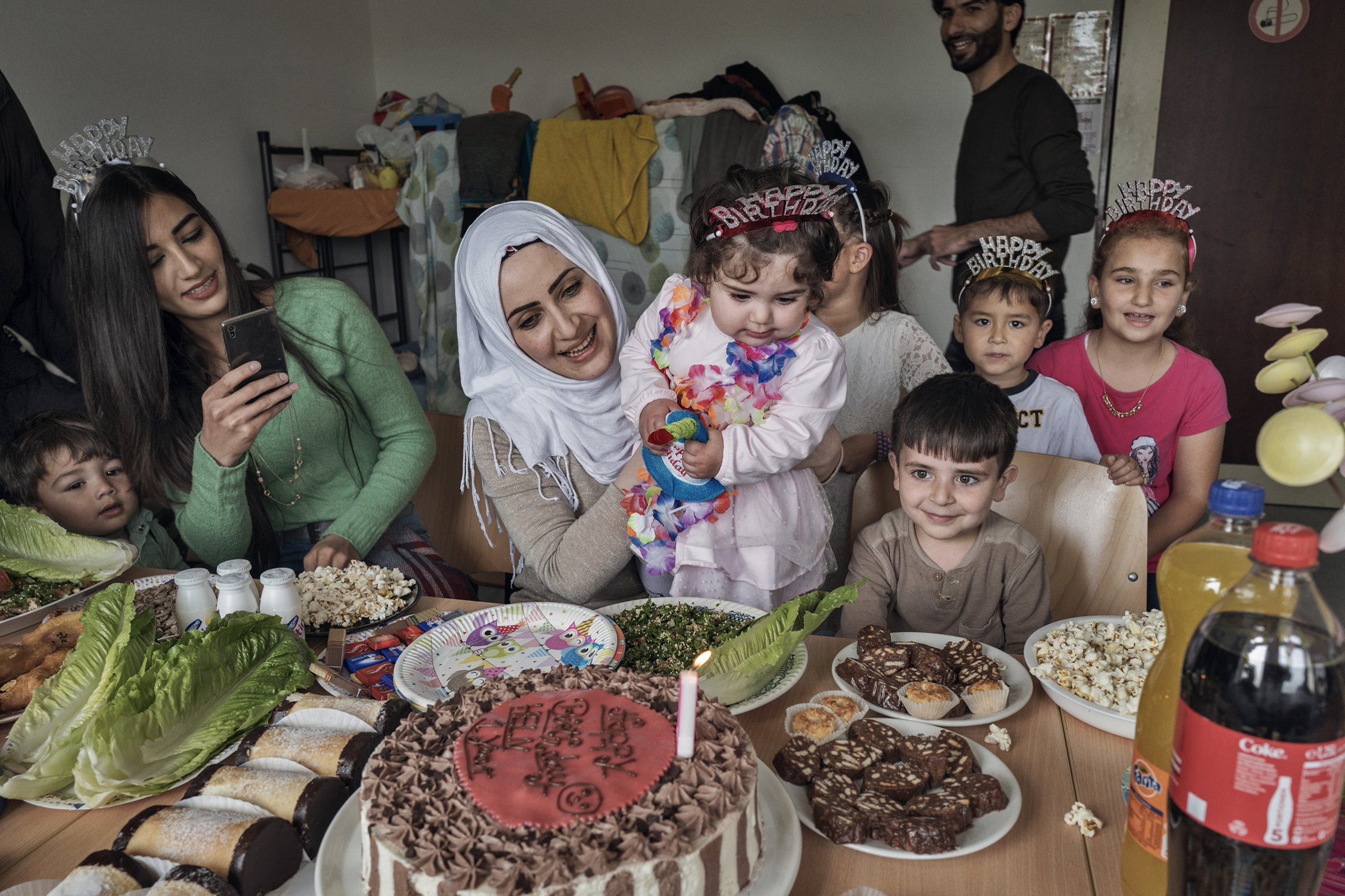
Fatima lives in Zarqa, a poor Jordanian city teeming with factories and crumbling apartment blocks. She fled the civil war in Syria with her husband and two daughters in September 2012. They hitched rides on trucks in the middle of the night until they finally crossed by foot into Jordan.
Because refugees do not have the right to work in Jordan, Fatima’s husband left for Turkey to find employment while she stayed behind with the girls. Older men constantly sexually harass Fatima and her daughters, ask for sex, or solicit marriage, so she keeps them hidden at home as much as she can while she sells baked goods door-to-door.
Throughout the world, in countries like Jordan, Turkey, Greece, Uganda, and Ecuador, millions of women are in the exact same predicament. According to UNHCR, the United Nations body responsible for protecting refugees, nearly half of all refugees are women or girls. So when the Trump Administration restricts refugees entering the country, it’s women just like Fatima and her daughters who are hit the hardest. The Supreme Court’s decision on December 4 to allow the third version of President Trump’s travel ban to go into full effect didn’t specifically affect refugees, but their plight must not be forgotten as the administration continues to limit their entry too.
The U.S. State Department reported that in the 2016 fiscal year, women and children accounted for more than 72% of all refugees resettled in the United States. But beginning on January 27, 2017, when the first travel and refugee restrictions targeting Muslim-majority countries went into effect, this administration has continued to make concerted efforts to keep as many refugees out of America as possible. Most recently, on October 24, President Trump signed an order limiting refugees from 11 countries that his administration deemed “higher-risk.” The president also slashed the limit for the number of refugees who can come to the United States in 2018 to 45,000 from 110,000, even as the number of displaced individuals around the world continues to soar.
These policies mean some of the most vulnerable women and girls on earth will be forced to remain in sprawling refugee camps or crowded urban neighborhoods, where they are at heightened risk of violence, trafficking, early marriage, transactional sex and exploitation.
Even worse, preventing refugees from finding safety in the United States punishes women and girls who are fleeing persecution and violence from some of the worst conflicts in the world, including in Syria and Iraq, where rape and other forms of sexual violence against women are used as weapons of war.
The reality is that less than 1% of the world’s refugees are resettled to a third country. The vast majority, 86%, stay in the developing countries to which they fled, with limited to no access to residency, education, employment or healthcare.
Women refugees often have no safety net; fleeing with few resources and little preparation, and risking separation from family members. Their gender, status and lack of resources or economic opportunities leaves them prey to men who would exploit, abuse and prostitute them.
HIAS, the agency I work for, assists refugee women and girls in refugee camps and sprawling urban centers in Africa, Latin America and Europe. We offer women or girl-only spaces where they can meet other women, build a network of friends and learn new vocational and financial skills. We link them to jobs or help start micro-businesses with the support of a coach. It’s one step in helping them bounce back.
We work with men, faith leaders and women to provide education and understanding that violence by men against women and girls is unacceptable. Using leadership training, community mobilization, art and campaigns we are building a movement that says, “enough is enough.”
But despite these efforts, there will always remain vulnerable women and girls, like Fatima and her daughters, who have the right to rebuild their lives in safety and dignity; who need to access healthcare, education and employment opportunities.
The United States has a critical role to play abroad through humanitarian programs and assistance, but abandoning our tradition of welcoming refugees to America sends a troubling signal to the rest of the international community. HIAS and our supporters continue to fight for the doors to remain open to refugees in the U.S. because we know that no other nation is better suited to defend women and girls who are at risk simply because of who they are.
Jina Krause-Vilmar is the director for economic inclusion and gender at HIAS, a global Jewish nonprofit that protects refugees.
More Must-Reads from TIME
- Donald Trump Is TIME's 2024 Person of the Year
- Why We Chose Trump as Person of the Year
- Is Intermittent Fasting Good or Bad for You?
- The 100 Must-Read Books of 2024
- The 20 Best Christmas TV Episodes
- Column: If Optimism Feels Ridiculous Now, Try Hope
- The Future of Climate Action Is Trade Policy
- Merle Bombardieri Is Helping People Make the Baby Decision
Contact us at letters@time.com